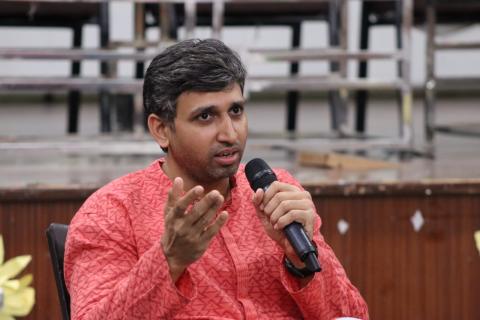
International Education Week: Reclaiming Education for a Shared Future
This is International Education Week, and education, in its truest sense, should always be intentional. As a species, we have shared our past in many ways, and we are bound to create a shared future. This is more evident today than ever, particularly in an era where technology has brought us closer together, and climate issues are signals urging us to reflect on our common future. Any education that lacks a global outlook is not education at all. Our future as a species depends on how we understand our current challenges and collaborate to overcome them.
The understanding of a shared planet with a common future gained significant attention after the Second World War. People across nations realized that we must come together to prevent wars and establish peace. Otherwise, a war in one corner of the earth cannot remain isolated—it inevitably impacts the rest of the world. The peace processes initiated in the 1950s and 1960s, however, seem to have lost their resonance with the current generation, which has a faded memory of the turbulent past we inherited. As a result, regional wars are breaking out, and each of these conflicts has the potential to escalate into an international crisis, threatening the future of human civilization.
The misguided narrative of prosperity and growth has come at a tremendous cost to our environment. As we inch closer to environmental disasters, even optimists are losing hope. Education must urgently respond to two critical challenges: the deteriorating climate conditions and the rising threat of wars among nations.
These challenges share a common root: the relentless accumulation of material wealth and power driven by greed. Our education system must deconstruct these harmful narratives and bring this understanding into classrooms. We must prepare the next generation to believe in coexistence and redefine prosperity—not as the accumulation of wealth, but as universal access to clean air, adequate drinking water, and balanced nutrition. Accumulation, whether of power or wealth, is a mental disease, and one often feeds into the other.
Unfortunately, we still ask students in classrooms, "What do you want to become?" This reduces the entire teaching and learning process to a pursuit of securing a livelihood. True education was never intended to serve this purpose. It was always meant to expand the horizons of human potential. As John Dewey famously said, "Education is not preparation for life; education is life itself."
With the rising concentration of wealth and the disruptive power of technology in the hands of a few, challenging the misguided narratives of prosperity and development becomes even harder. But people, in Delhi and elsewhere, must ask a simple question: What does all this accumulation and so-called development mean when we cannot even access clean air to breathe or clean water to drink? Are our promises of prosperity not completely misguided?
On this International Education Week, it is time to rethink and reclaim the narratives of education—narratives that promote peace, coexistence, and a sustainable future.
- Log in to post comments
